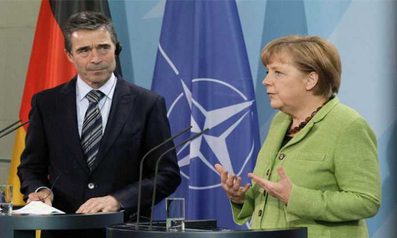By Janet Ekstract
İSTANBUL (TURKISH JOURNAL) – Libya is hanging by a thread with its UN-backed Government Of National Accord (GNA) valiantly attempting to stave off rogue military offensives from renegade commander Khalifa Haftar who has attempted to invade Tripoli since April 2019 and who controls a majority of Libya’s oil.
Despite Russian President Vladimir Putin hosting negotiations in Moscow on Monday with top defense and EU officials as well as the GNA’s Sarraj and Haftar – the ceasefire agreement’s sole signatory is Libya’s Prime Minister and Chairman of the Presidential Council, Fayez al-Sarraj.
On Tuesday, Russia announced that Haftar welcomed the ceasefire agreement but needed two days to consult with local Libyan tribes for their approval. In a statement, Russia’s Defense Ministry commented: “The commander of the Libya National Army (LNA) Marshal Khalifa Haftar, welcomed the final (ceasefire) statement but is taking two days to discuss the document with the leaders of the LNA-supporting tribes before signing it.”
Haftar left the Moscow meetings for Libya on Tuesday without signing the agreement and that one action riled Turkish President Tayyip Erdogan who responded by saying that Turkey is ready to act against Haftar if attacks continue.
On Tuesday, the Turkish president said that Turkey will not refrain from “teaching a lesson” to Haftar if his forces attack the country’s internationally recognized government. In a speech, Erdogan commented: “The Putchist Haftar ran away.”
The United Nations Support Mission in Libya (UNSMIL) in a twitter message on January 14, urged all sides in Libya to abide by the ceasefire. Their statement said: “For the sake of civilians in Tripoli, hundreds of thousands who have fled their homes and 116,000 children unable to attend their classrooms, the United Nations urges the parties to continue to abide by the declared ceasefire.”
Meanwhile, German Chancellor Angela Merkel invited Libya’s warring factions, EU leaders as well as global and regional powers to a peace conference in Berlin that will meet on Sunday January 19.
Merkel’s office announced that eleven countries were invited to the conference, among them Italy, Egypt, Russia, Turkey and the United Arab Emirates (UAE).
German Government Spokesman Steffen Seibert commented on twitter about the upcoming conference: “With the aim of supporting the work of the UN Secretary-General Antonio Guterres and the UN Special Envoy Ghassan Salame towards a sovereign Libya and for a reconciliation process, the Chancellor Merkel is calling for a Libya conference in Berlin on Sunday.”
The aim of the conference is to facilitate a political solution to the Libyan conflict that has currently been sidelined after lengthy talks in Moscow didn’t produce a dual party signing of the ceasefire agreement.
German Foreign Minister Heiko Maas expressed his hopes that the Berlin conference would lead to a solution to the conflict. Maas spoke to reporters in Berlin and commented that participating countries have already reached a common understanding on a document after a series of working-level talks in the last couple of months. Maas said: “In this conference we would like to once again discuss this (document) with all the participants and if we succeed we will also approve it.”
Maas added that the document’s purpose is to make sure that conflicting parties would cease military operations and return to political talks under the auspices of the United Nations.
Turkey and Russia initiated the ceasefire in a joint call for all military operations to end by January 12. The ceasefire took effect at midnight on Saturday, January 11 but later reports surfaced of violations by Haftar forces.
Turkey has made it clear that it supports the UN-backed GNA and denounced rogue military attacks by Haftar forces in Libya that have so far, killed and maimed at least 5,000 civilians.
In addition, Russia’s Defense Ministry said that by reaching an agreement this would establish and bring a total end to the cessation of hostilities as “The principle result of the meeting.” In addition, the ministry statement also said: “During the talks, the participants confirmed their commitment of the sovereignty, independence, unity and territorial integrity of the state.” The statement added: “The focus on the uncompromising fight against international terrorism was stressed.”
UNSMIL encouraged warring factions: “to give ongoing diplomatic efforts an opportunity to reach a permanent cessation of military operations and return to the political process.”




